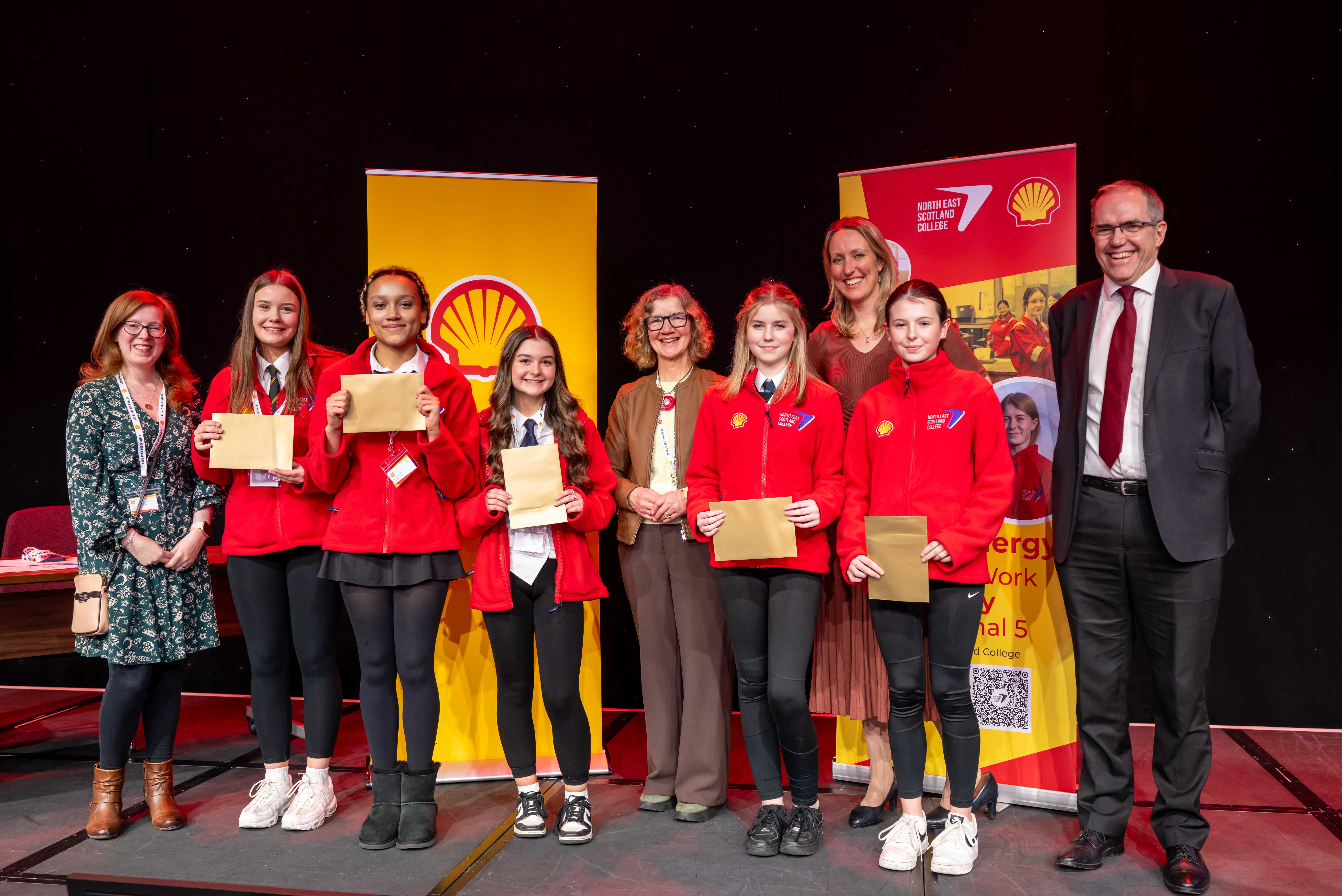A record number of students took part in the annual Girls in Energy conference in Aberdeen today, brainstorming creative ideas to complex challenges.
As the workforce of the future, the young women were tasked with finding fresh and innovative solutions to issues they identified as important to their local area.
The one-day conference, which was held at Aberdeen’s P&J Live today (Friday, November 29), was attended by around 240 girls from 17 schools across Aberdeen and Aberdeenshire – the largest number to date.
Sponsored by Shell UK and delivered in partnership by North East Scotland College (NESCol) and Fife College, Girls in Energy is a one-year engineering course open to 14 to 17-year-old secondary school pupils.
The initiative is designed to encourage young women to engage with the key STEM subjects of science, technology, engineering and maths. The end goal is to inspire them to consider a career in the global energy sector as it transitions towards net zero.
Around 50 mentors from the energy industry, including volunteers from Shell, were on hand to offer support and real-life advice as the girls worked in small teams to brainstorm ideas and potential solutions.
Following a welcome by Audrey Nicoll MSP and initial presentations, five groups were chosen to present to a Dragon’s Den style panel of judges, where Audrey joined fellow judges Caroline Laurenson, managing director of TL Tech and NESCol regional board member; and Astrid Hoetmer, GM Health, Safety, Security and Environment, Shell UK.
The winning team, Girls for Change, came up with an idea to tackle fuel poverty by harnessing kinetic energy and converting steps to power energy packs.
Simon Roddy, senior vice-president upstream at Shell UK, said: “Girls in Energy plays an important role in helping Shell UK to help close the current skills gap and meet our commitment to help 15,000 people into jobs with a focus on the energy transition by 2035.”
“Through partnerships with NESCol and Fife College programmes like Girls in Energy provide a valuable insight into the vital role energy plays in our lives, both the oil and gas the country needs today and as the UK’s energy system transitions.”
“We hope the experience will encourage more young women to choose this exciting career path. As our future workforce, I am always inspired by the ideas and solutions the teams come up with.”
In addition to initiatives like Girls in Energy, Shell UK is working together with college partners on three Energy Transition Skills Hubs, which provide teaching space and equipment demonstrating the latest energy technologies.
Hubs across the UK provide students with the opportunity to learn and refine critical industry skills, such as welding and fabrication workshops, virtual control room facilities and lessons in nano grid design technology.
Work is under way on an Energy Transition Skills Hub at NESCol in Aberdeen, which is due to open in 2025. The hub aims to significantly increase the capacity of the existing training facilities for fabrication skills, providing a flexible space which can adapt to the skills requirements of the future.
Duncan Abernethy, NESCol’s director of business development, said: “We are extremely proud of the Girls in Energy initiative and its growing impact, underpinned by our partnership with Shell UK to develop the knowledge and skills which will help solve our future energy challenges.
“The annual conference is the perfect opportunity to highlight the value of the initiative to the participants and to celebrate their involvement.”
The Girls in Energy programme was launched in 2010, and more than 1,600 students have now completed the course, with many going on to pursue careers in the energy sector or choosing a path related to STEM.
It runs as part of the academic year and provides young women with hands-on engineering experience while also working towards an SQA National 5 qualification in Skills for Work – Energy.
Lisa Mowat, a former Girls in Energy participant who is now a senior integrity support engineer at Aker Solutions, inspired the students with a presentation on her career path.
“Girls in Energy led me directly to a career in inspection and integrity management, an option I didn’t know existed as a teenager,” she said. “The most beneficial part of Girls in Energy was visiting different companies and power stations and seeing what they all do. It’s so important to get experience and to learn what roles are out there – there are thousands of different roles you can do.”
This year, more than 250 pupils from schools across Aberdeen, Aberdeenshire and Fife are taking part in the Girls in Energy programme and recruitment is open for next year’s intake.
